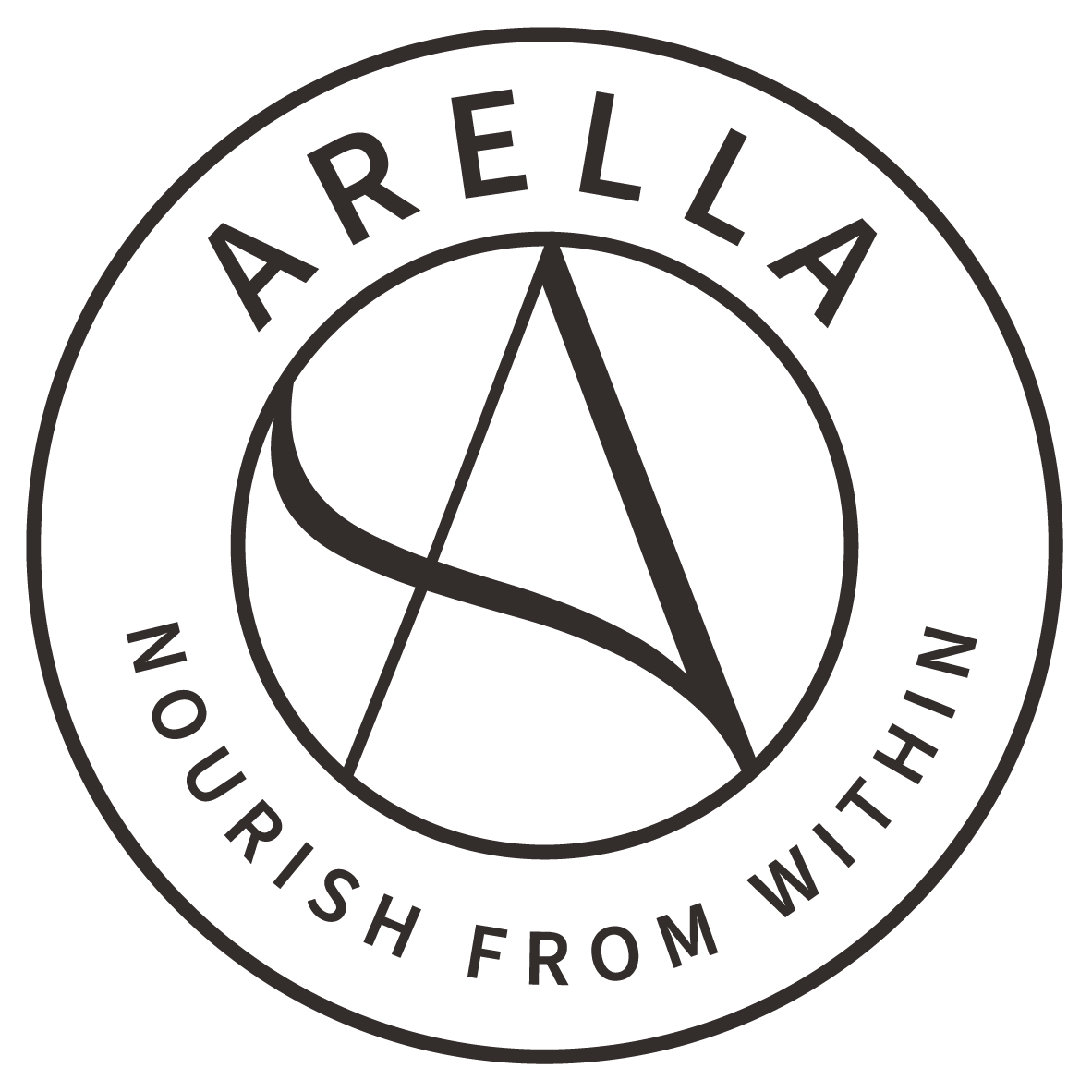Itchy skin in menopause is a symptom many women experience but rarely expect.
Dryness, irritation, and sensitivity can appear seemingly out of nowhere, often leaving you frustrated and wondering what’s happening to your skin.
Menopause and itchy skin are closely connected because hormonal changes during this stage affect the skin’s natural balance.
In this guide, we’ll look at why menopause can cause itchy skin, the everyday steps that can help you feel more comfortable, and the role supplements may play in easing dryness and irritation.
We’ll also share how Arella Collagen and Pause work together as a powerhouse duo to support your skin and overall well-being - pre, during, and post menopause.
Can Menopause Cause Itchy Skin?
Yes. Menopause can cause itchy skin, also known as pruritus, and the main reason lies in the decline of oestrogen.
This hormone helps your skin stay hydrated, supple, and strong.
As oestrogen levels fall, the skin’s ability to maintain moisture and elasticity reduces, leading to dryness and irritation.
Several changes happen at the same time:
● Reduced natural oils (sebum) – Oestrogen supports sebum production. When levels drop, the skin produces less oil, leaving it drier and more prone to itching.
● Collagen loss – Collagen gives skin its structure and firmness. During menopause, collagen production slows, making skin thinner and less resilient.
● Decline in hyaluronic acid – Hyaluronic acid is essential for hydration, and reduced levels can make skin feel tight, itchy, and less able to hold onto moisture.
● Weaker barrier function – Without enough oils and structural proteins, the skin barrier struggles to lock in moisture and protect against irritants.
● Greater sensitivity – Once minor triggers like dry air, detergents, or clothing can now feel more irritating.
These changes often begin in peri-menopause and continue into post-menopause.
For some women, the result is skin that feels itchy, tight, or uncomfortable, particularly on the arms, chest, back, or legs.
For others, it may even feel like a crawling sensation under the skin - a symptom called formication, which is linked to declining oestrogen and changes in skin sensitivity.
Gentle Skincare and Lifestyle Support During Menopause
While itchy skin in menopause can be frustrating, simple daily steps make a real difference.
Choose mild cleansers and moisturisers
Avoid harsh soaps and fragranced products, which strip away natural oils.
Instead, look for fragrance-free cleansers and apply a rich moisturizer with ceramides, glycerine, or hyaluronic acid (more on this later) while your skin is still slightly damp.
Keep baths and showers short and lukewarm
What you may not realise is that hot water can dry out skin further. So that long luxurious bath may actually be making matters worse.
Limit showers to 5–10 minutes using lukewarm water, and try adding colloidal oats to your bath for a soothing effect.
Add moisture to your environment
Dry indoor air can worsen itchy skin, which can be particularly problematic in the winter.
A humidifier helps restore balance, especially in colder or drier months.
Wearing soft fabrics and using fragrance-free laundry detergents can also reduce irritation.
Stay hydrated and eat skin-friendly foods
Drinking water alone won’t fix dry skin, but hydration supports overall health.
Include omega-3-rich foods like flaxseeds, chia, and walnuts, and aim for a diet high in vitamin C and E to support collagen and antioxidant protection.
Identify triggers
Keep note of when your skin feels most uncomfortable. Stress, alcohol, smoking, and sun exposure can all intensify skin issues during menopause.
Managing these triggers helps your skin recover more easily.

Supportive Supplements and Treatments for Menopause Itchy Skin
Topical care is important for immediate relief, but supporting your skin from within provides longer-term benefits.
Combining the two approaches helps reduce dryness, restore resilience, and keep skin feeling more comfortable during menopause.
Key Supplements That May Help
● Collagen support – Collagen levels fall sharply in menopause, affecting firmness and hydration. Supplements that stimulate your body’s own collagen production can help restore elasticity. Arella Collagen is formulated to identically match type I human collagen, helping restore hydration and resilience where it’s most needed.
● Omega-3 fatty acids – Anti-inflammatory and hydrating, they help reduce skin dryness and support the skin barrier.
● Vitamins C and E – These antioxidants protect against oxidative stress, while vitamin C also plays a role in collagen synthesis. You’ll find both in Arella’s supplements, supporting skin health and protection from within.
● Hyaluronic acid and ceramides – Some supplements now include these skin-focused ingredients to improve hydration and barrier strength from the inside out. Arella Collagen includes hyaluronic acid, giving skin extra support against dryness during menopause.
Topical Treatments Worth Considering
● Moisturisers with ceramides and hyaluronic acid – Strengthen the skin barrier and help lock in moisture.
● Fragrance-free emollients – Provide a protective layer that soothes irritation and reduces itch.
● Colloidal oatmeal creams or baths – Contain avenanthramides, natural compounds shown to calm itchy and inflamed skin.
● Gentle exfoliation with lactic acid or urea creams – Helps remove flaky skin and improve absorption of moisturisers, while avoiding harsh scrubs.
● SPF protection – UV damage accelerates collagen loss, so daily sun protection supports both comfort and long-term skin health.

Arella’s Menopause Powerhouse: Collagen and Pause
For many women, the most effective results come from combining Arella Collagen and
Arella Pause, which work in different but complementary ways.
Arella Collagen
Collagen decline is one of the main reasons skin becomes thinner, drier, and itchier in menopause.
Arella Collagen helps restore elasticity, improve hydration, and strengthen the skin barrier - tackling the structural causes of itchy skin.
Many women, including members of our own team, have noticed itchy skin improving with collagen alone.
In fact, results such as healthier hair growth and calmer skin are often reported within just weeks of starting.
Arella Pause
While collagen strengthens skin structure, Arella Pause supports the hormonal balance behind it.
Its blend of vitamins, minerals, and botanicals helps ease dryness, fatigue, mood swings, and other common menopause symptoms.
For skin, it provides added hydration and resilience by working with your body during this transitional stage.
The Duo Together
Taken together, Collagen and Pause form a complete approach to itchy skin in menopause.
Collagen strengthens and hydrates from within, while Pause balances hormones to reduce dryness and sensitivity.
Both products carry the MTick — the menopause-friendly symbol backed by GenM — so you can trust they’re designed with women’s needs in mind.
Read our guide on taking menopause supplements with HRT here.
Final Thoughts
Unfortunately, menopause and itchy skin often go hand in hand, but that doesn’t mean you have to put up with ongoing discomfort.
By adopting gentle skincare habits, staying hydrated, and nourishing your body with the right nutrients, you can help your skin stay stronger and calmer.
Supplements such as Arella Pause offer additional support, working alongside your lifestyle changes to ease dryness and improve resilience.
With the right care, itchy skin in menopause can be managed, leaving you more comfortable and confident in your body.
FAQs
What helps with itchy skin in menopause?
Gentle skincare, moisturisers with ceramides or hyaluronic acid, staying hydrated, eating omega-3-rich foods, and using a humidifier can all help. Supplements such as Arella Collagen and Pause add extra support.
Which supplements are good for menopause itchy skin?
Collagen, omega-3, vitamins C and E, and hyaluronic acid can all help. Arella Collagen directly supports hydration and resilience, while Pause helps balance hormones and ease dryness.
Is itchy skin a sign of perimenopause?
Yes. Itchy skin can begin during perimenopause, as hormone levels start to fluctuate before periods stop completely.





